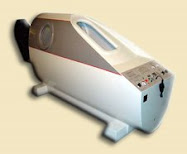
Why are blast injuries an important issue right now?
America's armed forces are sustaining attacks by rocket-propelled grenades, improvised explosive devices, and land mines almost daily in Iraq and Afghanistan. These injured soldiers require specialized care from providers experienced in treating traumatic brain injuryIn combat, how often do blasts cause injury?
Blast injuries have become common in civilian disasters and military conflicts. It has been suggested that over 50% of injuries sustained in combat are the result of explosive munitions including bombs, grenades, land mines, missiles, and mortar/artillery shells (Coupland & Meddings, 1999).How does a blast cause injury?
Blast injuries are injuries that result from the complex pressure wave generated by an explosion. The explosion causes an instantaneous rise in pressure over atmospheric pressure that creates a blast overpressurization wave. Primary blast injury occurs from an interaction of the overpressurization wave and the body with differences occurring from one organ system to another. Air-filled organs such as the ear, lung, and gastrointenstinal tract and organs surrounded by fluid-filled cavities such as the brain and spinal are especially susceptible to primary blast injury (Elsayed, 1997;Mayorga, 1997). The overpressurization wave dissipates quickly, causing the greatest risk of injury to those closest to the explosion.What symptoms may indicate a closed head injury?
In a blast, brain injuries can also occur by other means such as impact from blast-energized debris, the individual being physically thrown, burns and/or inhalation of gases and vapors.
Difficulties experienced as a result of a closed-head blast injury include post concussion complaints such as decreased memory and attention/concentration, headaches, slower thinking, irritability, and/or depression.




No comments:
Post a Comment